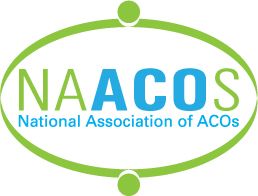
NAACOS Calls for Greater Transparency in Innovation Center's Work

Several healthcare organizations, including the National Association of Accountable Care Organizations (NAACOS), called on CMS’s Center for Medicare & Medicaid Innovation (Innovation Center) to take a more public process for developing future value-based payment models and updating existing models.
Several healthcare organizations, including the National Association of Accountable Care Organizations (NAACOS), called on CMS’s Center for Medicare & Medicaid Innovation (Innovation Center) to take a more public process for developing future value-based payment models and updating existing models.
While realizing we need to change the way health care is paid for and delivered, NAACOS and others tell Medicare’s top officials
“ACOs have shown they’re committed to new care models, including those with higher levels of risk and reward, but they need more information on what the future holds if they’re expected to fully embrace the Innovation Center’s work,” said Clif Gaus, Sc.D., NAACOS president and CEO. “Our Next Generation Model ACOs have been waiting anxiously for months to see what future options will be available, and their experience could be shared to improve the Innovation Center’s work.”
The letter was sent to CMS Administrator Seema Verma and Innovation Center Director Adam Boehler. The letter was signed by NAACOS, the American Medical Group Association, Association of American Medical Colleges, Health Care Transformation Task Force, Medical Group Management Association, National Coalition on Health Care, Next Generation ACO Coalition, Patient-Centered Primary Care Collaborative, and Premier.
The letter states the Innovation Center’s work needs a public process to allow stakeholder comment on all model design elements prior to finalizing the model. Model changes also need to be made and communicated clearly and publicly.
Specifically, the groups recommend establishing a process similar to annual changes in Medicare Advantage, where certain policy updates are communicated publicly with some opportunity for stakeholder feedback, but without the formal notice-and-comment rulemaking. Currently, the Innovation Center often communicates changes through contract amendments, sometimes in the middle of a performance year.
“There is a wealth of expertise from those on the front lines of healthcare delivery and payment transformation—knowledge that should be solicited throughout a more public process of developing and updating models,” Gaus added.
Read the
Newsletter
Stay ahead of policy, cost, and value—subscribe to AJMC for expert insights at the intersection of clinical care and health economics.









